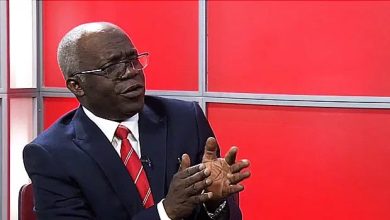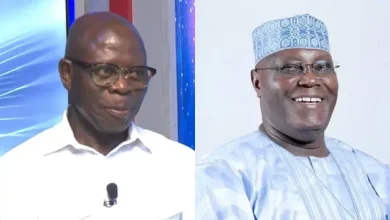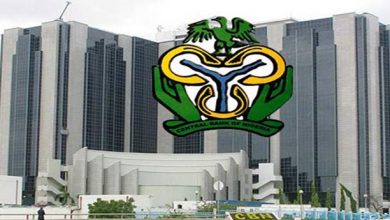SERAP Sues President Tinubu for Failing to Release NDDC Forensic Audit Report

Four concerned Nigerians and the Socio-Economic Rights and Accountability Project (SERAP) have sued President Bola Tinubu’s administration in the ECOWAS Court of Justice for not disclosing the forensic audit report on the Niger Delta Development Commission (NDDC).
Top politicians and government officials are accused of embezzling N6 trillion between 2001 and 2019, according to the report.
The late former President Muhammadu Buhari requested a forensic assessment of the NDDC’s activities in 2019 in response to the massive corruption charges. Additionally, Nyesom Wike, the Minister of the Federal Capital Territory (FCT), reportedly claimed that a previous minister’s wife had amassed N48 billion over a 12-month period “to train Niger Delta women.”
Prince Taiwo Aiyedatiwa, Chief Jude Igbogifurotogu Pulemote, Ben Omietimi Tariye, and Princess Elizabeth Egbe are the four Nigerians involved in the lawsuit.
The ECOWAS Community Court of Justice in Abuja received the suit number ECW/CCJ/APP/35/25 last Friday. The plaintiffs are requesting: “a declaration that the Nigerian government’s failure to publish the NDDC forensic report amounts to a fundamental breach of the country’s international human rights obligations.”
The Nigerian government has been presented with the NDDC forensic report, but it is still secret. The plaintiffs are requesting “an order directing and compelling the Nigerian government to publish and ensure access to information to the NDDC forensic report.”
Additionally, the plaintiffs are requesting “an order directing and compelling the Nigerian government to adopt and ensure effective measures to address transparency and accountability gaps in the spending of public funds budgeted for the NDDC.”
Our right to know the truth regarding the corruption allegations detailed in the NDDC forensic report has been infringed by the Nigerian government. The report’s charges are being covered up and impunity is being perpetrated by obstructing its dissemination.
“The public’s right to open access to information and to know what governments are doing on their behalf is implicit in freedom of expression. Without this, the truth would linger and people’s participation in government would remain fragmented and illusory.”
“The Nigerian government has failed to publish the NDDC forensic report and has not given the plaintiffs or the Nigerian public any explanation or justification for doing so.”
“As part of the right to seek, receive, and disseminate information of all kinds, the Nigerian government is legally required to guarantee and ensure transparency and access to information regarding the NDDC forensic report.”
“There is an overriding public interest in the publication and disclosure of the NDDC forensic report,” according to the lawsuit that was filed on behalf of SERAP and the four concerned Nigerians by their attorneys, Kolawole Oluwadare, Kehinde Oyewumi, and Andrew Nwankwo.
Read Also: No Truth in 2025 WAEC Cancellation Rumour — Education Minister
In addition to harming the rule of law and violating the plaintiffs’ other rights, the Nigerian government’s persistent refusal to release the NDDC forensic report prevents the plaintiffs from thoroughly examining the findings and holding the government responsible.
Since the NDDC forensic report deals with issues of accountability, transparency, and human rights—all of which are addressed by the International Covenant on Civil and Political Rights and the African Charter on Human and Peoples’ Rights—the information sought is not classified for national security reasons.
According to Article 9 of the African Charter on Human and Peoples’ Rights and Article 19 of the International Covenant on Civil and Political Rights, the Nigerian government is required to uphold, advance, and guarantee the fundamental human right of access to public information. Both human rights accords have been ratified by Nigeria.
The Nigerian government is positively required under Article 9 of the African Charter on Human and Peoples’ Rights and Article 19 of the International Covenant on Civil and Political Rights to grant the plaintiffs access to the NDDC forensic report that is in its custody and control.
“The plaintiffs have the right to engage in issues of public interest, such as seeking accountability and justice for victims of corruption detailed in the NDDC forensic report, and access to information is a fundamental tool for fostering citizenship.”
“The principles underlying the African Charter on Human and Peoples’ Rights, the International Covenant on Civil and Political Rights, and other human rights treaties to which Nigeria is a state party include these issues of public interest.”
“The plaintiffs would be able to effectively exercise their human rights and hold the Nigerian government accountable for the allegations detailed in the NDDC forensic report if they had access to information about it.”
The NDDC forensic report’s public release will also encourage democratic engagement and give the populace the ability to hold the Nigerian government responsible and curb corruption in the nation.
“State administration, including the Nigerian government, must adhere to the principles of maximum disclosure and good faith in order to ensure the full and effective exercise of the right of access to information.”
Article 9 of the African Charter on Human and Peoples’ Rights and Article 19 of the International Covenant on Civil and Political Rights both contain the principle of maximal disclosure, which serves as a guiding principle for the right to information.
According to the maximum disclosure principle, there should be tight and limited exceptions to the general rule of transparency and the right to access. The exception is secrecy; the rule is the right to obtain information.
“The right to obtain information is not unqualified; there may be restrictions on it.
These restrictions must, however, closely adhere to the standards established by international human rights law, which provide that restrictions must be extraordinary, legally recognized, founded on a legitimate purpose, and proportionate and required to achieve that purpose.
They must consider that information access is the rule and concealment is the exception, thus the exceptions shouldn’t become the norm.
“It is the Nigerian government’s responsibility to prove that restrictions on the dissemination and availability of information about the NDDC forensic report are in line with international human rights norms and the associated legal requirements placed on the nation.”
“Discretionary and capricious actions of the state must be avoided in imposing limitations on the right to information and transparency, as the NDDC forensic report is under the control and custody of the Nigerian government.”
“The plaintiffs’ right to a legal remedy is violated and the requirements of the African Charter on Human and Peoples’ Rights and the International Covenant on Civil and Political Rights are incompatible with the denial of access to information regarding the NDDC forensic report.”
However, no date has been set for the suit hearing.





